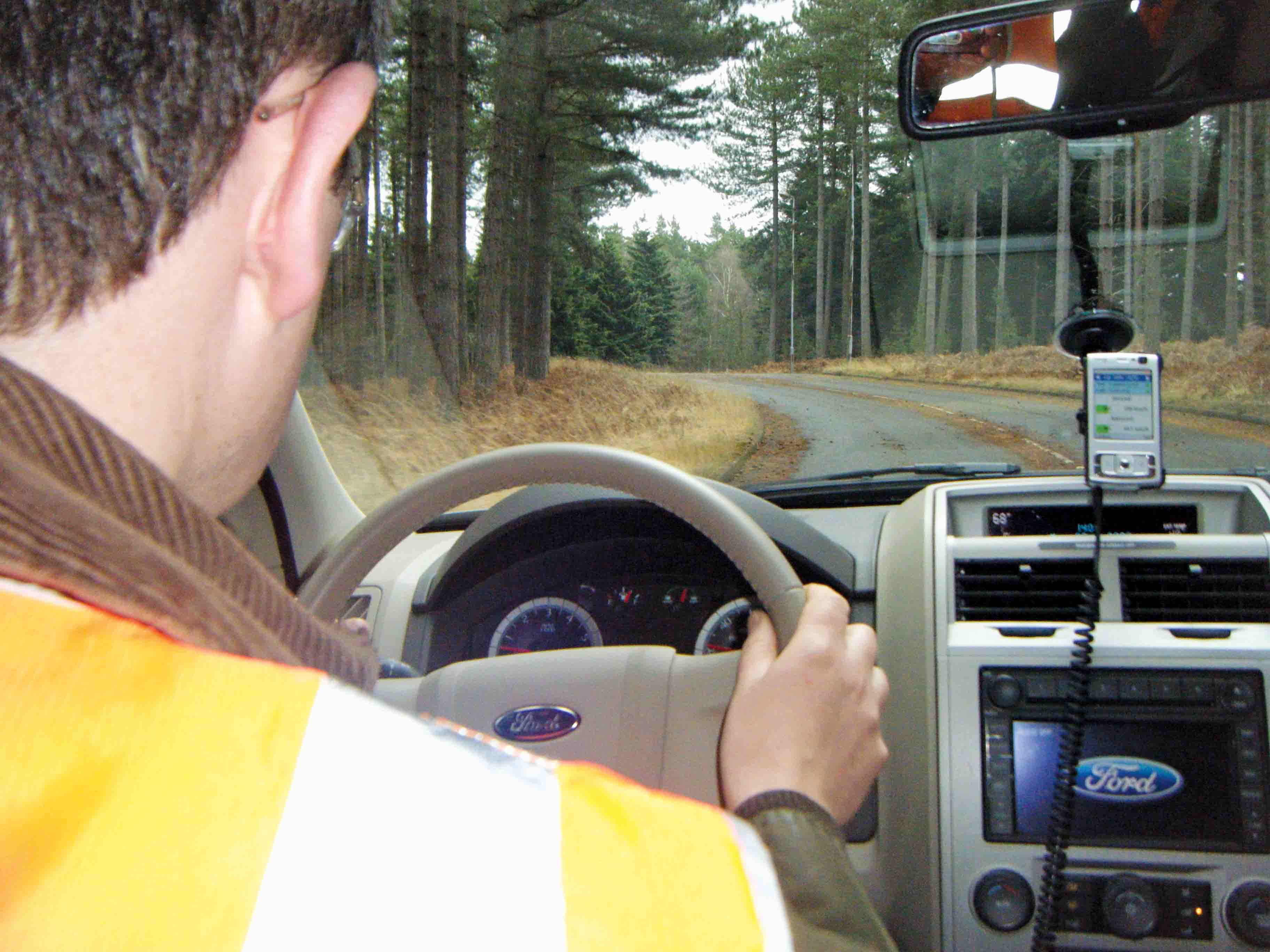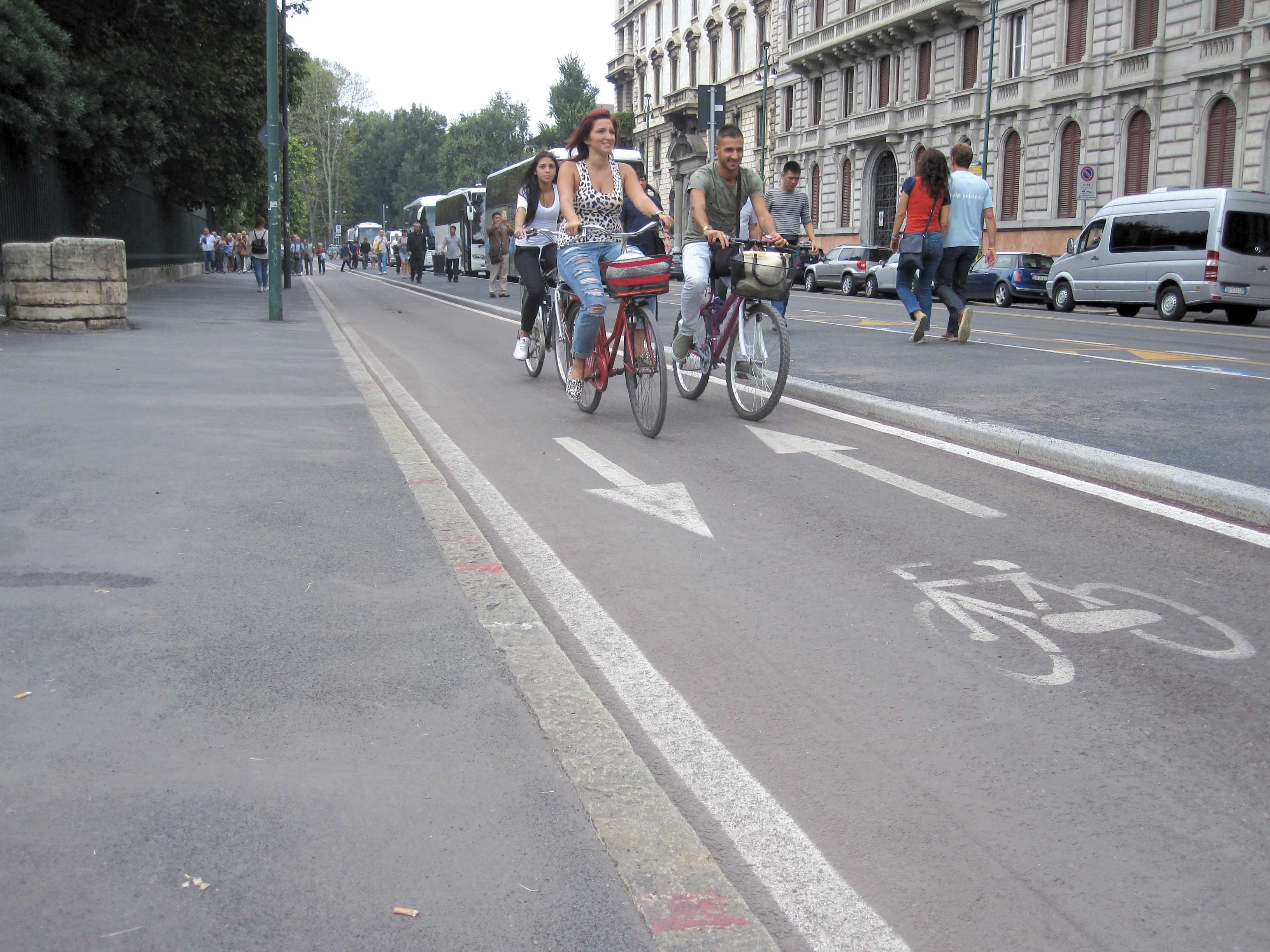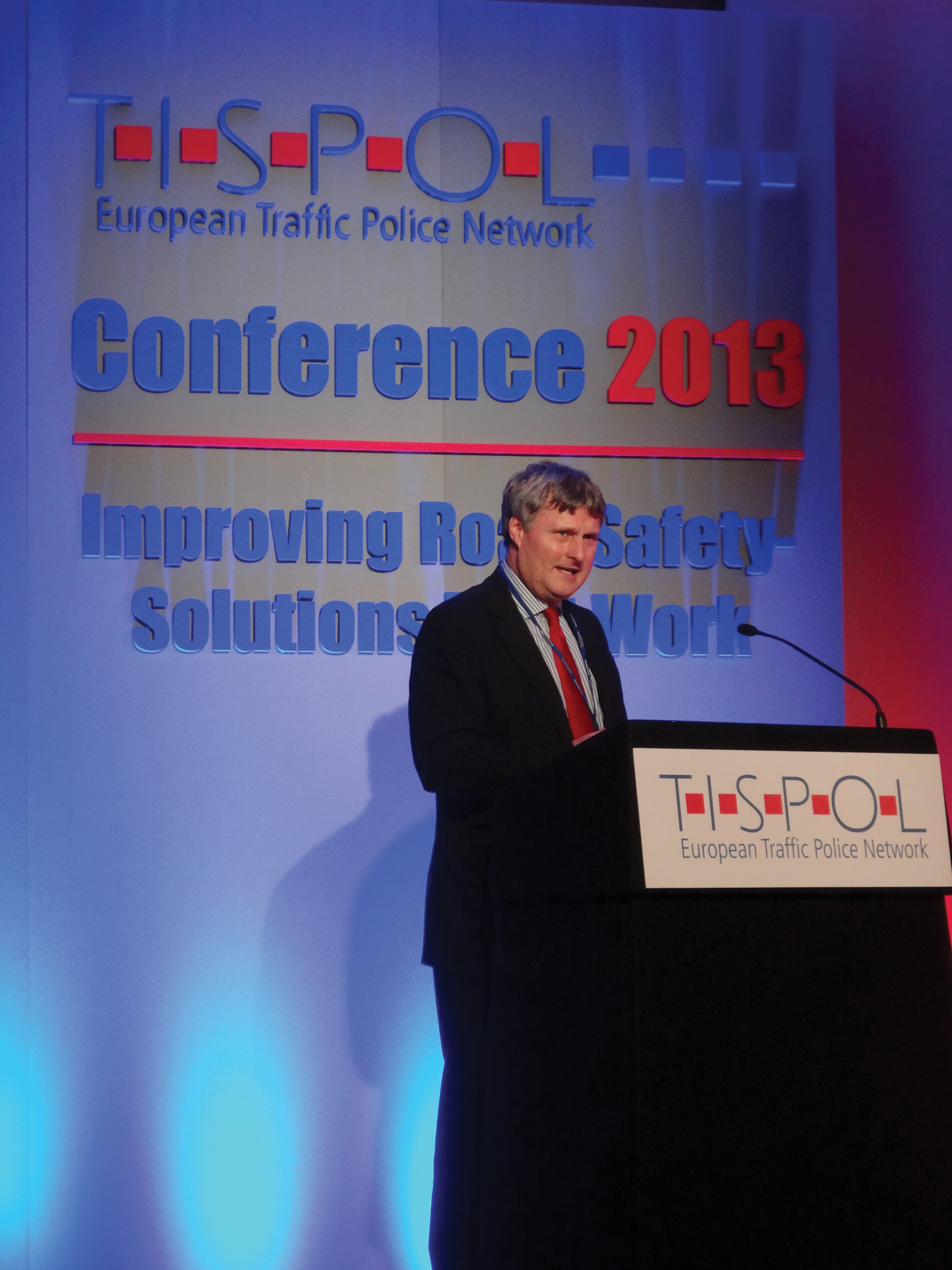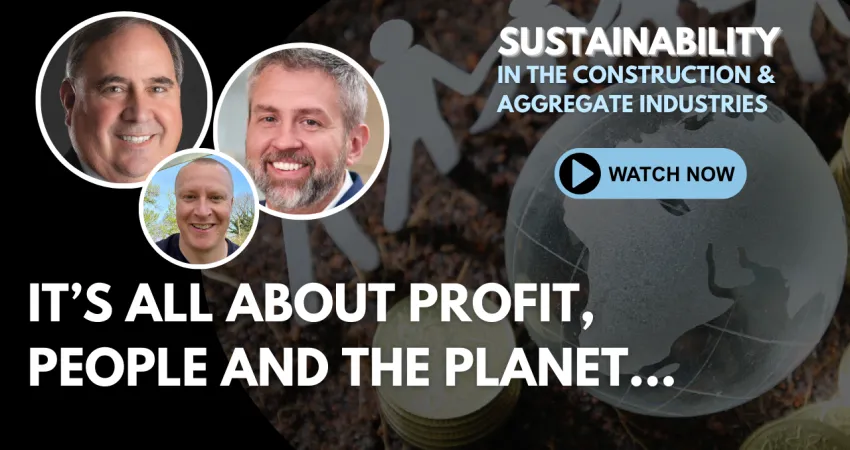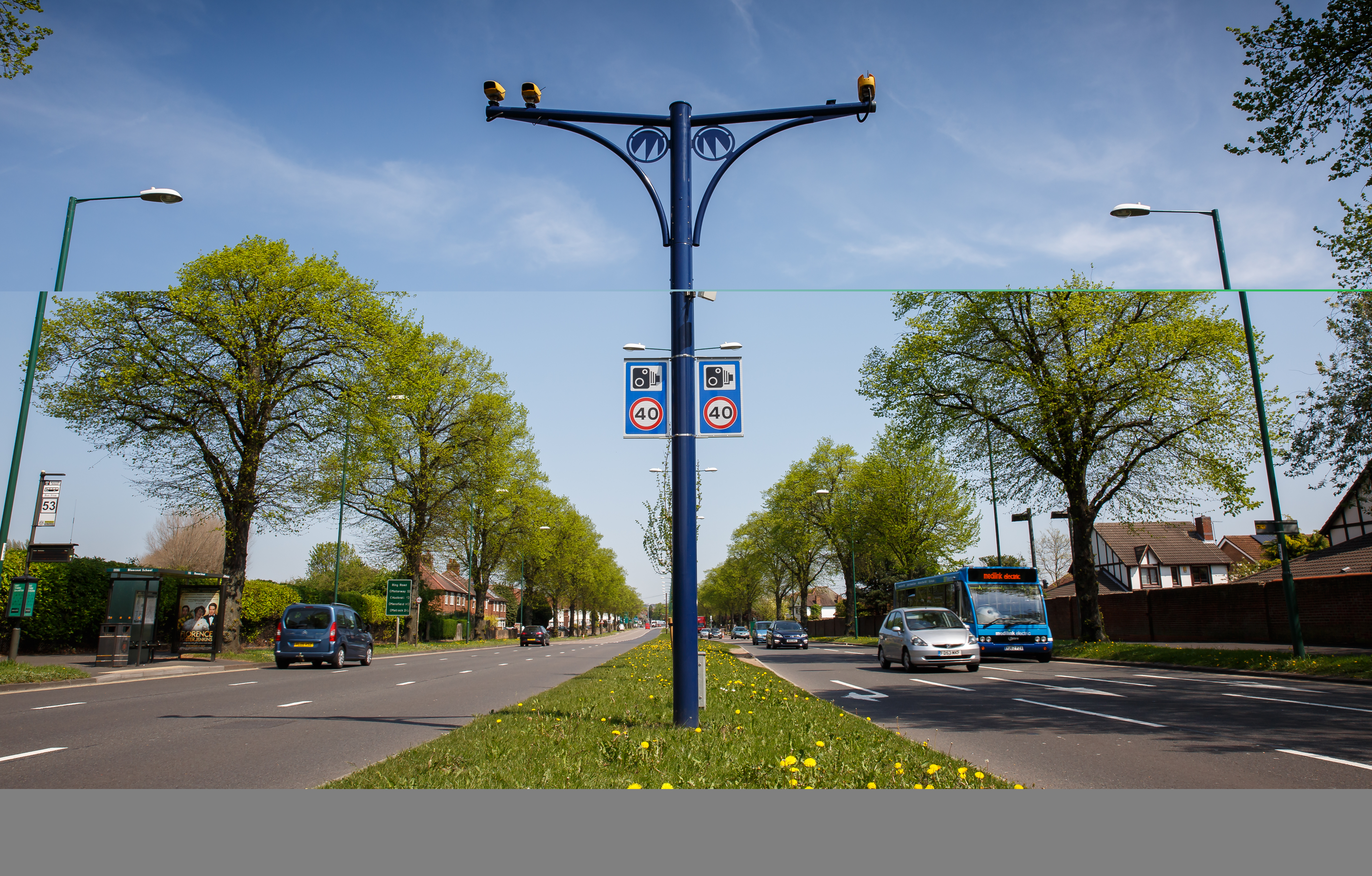
Police budgets are being slashed, staff numbers are falling and Europe’s long-term trend towards ever-fewer road deaths has ground to a halt. Does Europe’s road network face a far more dangerous future? Geoff Hadwick reports from TISPOL 2017 in Manchester, UK
Europe’s road safety record is under threat. Lower and lower funding levels have become a very serious, and very worrying, problem for the EU’s traffic police bosses. They know that they must find new ways to focus road users on changing their behaviour, or accident statistics across the region are going to deteriorate fast. These are hard times and the spending crisis is biting hard.
In an opening message to the 2017
A tough target indeed: speaker after speaker at TISPOL 2017 agreed that the EU’s official 50% improvement target is no longer within reach. In fact, many of this year’s participants were clearly worried about the situation starting to go backwards. Is the number of road deaths about to go up again?
TISPOL president Colonel Paolo Cestra, commander of the National Traffic Police in L’Aquila in Italy, caught the mood of the conference when he said halving road deaths by 2020 will be truly challenging. “There is a real war on our roads. 70 people are killed every day on Europe’s highways and we continue to think in numbers. We must stop doing this and think in terms of people and lives,” he said.
According to Cestra, a 10% to 20% improvement in the number of road deaths is probably the best that the EU can hope for now. The statistics are “not going to decrease in the future like they have done in the past”, he said. Why not? “We face more and more challenges and new enemies all the time.” For instance, “technology used to be our friend, but today we see more and more road users misusing these technologies”… driving while looking at mobile phones, laptops, iPads and so on. “We must fight as hard as we can to stop the use of these technologies at the wheel.”
Sonya Hurt, chair of Road Safety GB, echoed Cestra’s call. “Engineering solutions have played an important role [in improving road safety] in the past,” she said. “But now the long-term focus needs to be on behaviour…enforcement is key.”
Keynote speaker Moyagh Murdock from the Road Safety Authority in Ireland reminded the police chiefs that “we are still battling with problems like alcohol and drug abuse”, as well as the “insufficient” use of seat belts, reckless speeding and the use of mobile phones at the wheel.
“It is a big challenge to get legislative change in a place like Ireland,” Murdock told the conference, “when we have publicans and hoteliers sitting as MPs in parliament.” They are an in-built lobby group that prefers a lenient approach. “What we need now is more investment in road safety,” Murdock said.
“There aren’t enough new roads and not enough improvements being built in our road structures. We are running into problems like people never receiving their fixed penalty notices.” This is all aided and abetted by “a sympathetic judiciary”. Ireland’s public austerity programme since the global financial crash has, in effect, pushed the road safety agenda backwards, she said.
You can quite easily “see the effects and our lack of progress”, she added. “There was a 15% increase in the number of road deaths in 2016 [in Ireland]. We have to ask ourselves what is happening out there.”
She wondered if changes like this might also be related to a “crisis of confidence in breathalyser tests in the last 18 months” in her country, a traffic police system that has seen its budgets slashed and is “not seen on the roads as much as it used to be.” She is also worried about the effect of “people like Danny Healy-Rae,” an independent politician and Teachta Dála (TD) for the Kerry constituency in southern Ireland, “who wants it to be OK for people to drive after drinking three pints of beer in rural areas. He is typical of the sort of challenge we face.”
“We have to make data anonymous,” said Murdock. “We have got to make our data more reliable, and we have got to make it national. We need more data fields and we need to export the information to straightforward (easy to access) databases. We need more information on the pre-crash situation and we need better qualitative info.”
New thinking is clearly needed. In a very practical and very down-to-earth presentation, Superintendent Martin Cleworth from Cheshire Police in the UK, advised traffic police forces everywhere to embrace as much new technology and as many free-to-air social media channels as possible. Use these new communication channels to get more done with fewer resources, he said.
The future for traffic policing will be in exploiting things like “ANPR (automatic number plate technology) and dash-cam capability,” Cleworth said. Try to do more with less and “reinvigorate” ideas like “community speed watch” groups where members of the public can be encouraged to help monitor their local roads and to get in touch with the police when they see offences taking place. Cleworth would also like to see “greater regional collaboration on specialisms” such as motorway or truck investigations.
“Innovative engagement” is a good idea, he said. Free channels like twitter can get results and spread the word. A much more open and approachable traffic policing system is needed. There must be no return to the old way of policing the roads which used a system based on “specialist silos along with a focus on collision data and our agendas” as opposed to the public’s agenda. In the past, too many traffic police forces were “not intelligence-led” and suffered from a “lack of accountability and the limited use of technology”.
“Listen to your communities,” Cleworth said, “embrace IT and be innovative and passionate.” And, if you want to make this work, have a clear “police and crime plan” that does not say to people that we, the police, know best. Look for public support and promote what you are doing, he said. This “reinforces legitimacy” and gets people much more engaged and involved, at all levels. Use social media to share your policing initiatives, to show dash-cam recordings of things like uninsured vehicles being impounded and get back to the founding principles of “the police are the public and the public are the police.”
Cleworth would like to see a move away from the blame game. “There is too much polarisation around different road users … cyclists blame car drivers, car drivers blame truckers, and so on. The truth is if you’re an idiot on a bike, you’ll be an idiot in a car. It is all about the road user and not the vehicle.”
In Germany, there is a model for involving the public and the road users themselves in exactly this sort of debate. The German Road Safety Council (DVR), which was founded in 1969 as a not-for-profit organisation, now has around 200 member groups all focused on “supporting measures to improve road safety for all road users” and on lobbying the government.
Jacqueline Lacroix from DVR told the conference that some legislative changes in September could “sharpen” the rules. The ban on mobile phone use has now been “extended to further devices such as tablets and navigation systems” she said. Also, “illegal racing is now considered as a criminal act,” and road users who “impede or encumber the rescue path for emergency vehicles after a crash will be fined. (see box).”
The conference also heard papers on post-crash support, the success that Norway is having in tackling drug abuse at the wheel and how best to tackle the special problems posed by older drivers. Superintendent Jarmo Puustinen of the Finnish Police spoke about how drones are being used to help the traffic police with enforcement and how to use research, statistics and analysis to understand the challenges involved in modern traffic policing.
It’s about how to identify the right opportunities for change.
Enforcement and education
TISPOL is the leading European traffic police organisation set up by Europe’s traffic police forces “to improve road safety and law enforcement on the roads of Europe”. This influential group says that its “main priority is to reduce the number of people being killed and seriously injured on Europe's roads. It believes that the enforcement of traffic law and education, where appropriate, will make a significant contribution to reducing the carnage on our roads. The group remains a passionate supporter of Project Edward, a campaign which aims to create a “European Day Without a Road Death”. A key plank of this project is “education for road users”, according to TISPOL, “backed up where necessary by enforcement”.
More can be done
Jacqueline Lacroix from German Road Safety Council DVR said her organisation is working with the German traffic police towards a set of clear goals:
• strengthening enforcement, financial resources for police and the legal framework;
• adjusting speed limits on rural roads and restricting overtaking;
• preventing tree collision accidents;
• implementing the measures of the Guideline for Motorcycle Routes;
• continuing to conduct safety audits;
• improving the quality and funding of local accident prevention committees;
• adjusting urban speed limits to better match risks;
• increasing safety at intersections and junctions;
• enforcement to equip vehicles with safety-relevant driver assistance systems;
• supporting the introduction of an alcohol ban for all drivers;
• examining measures to reduce alcohol-related traffic accidents of cyclists;
• improving the visibility of vulnerable road users;
• pushing for compulsory driving learning time extensions;
• developing road safety measures aiming at influencing road user behaviour.



